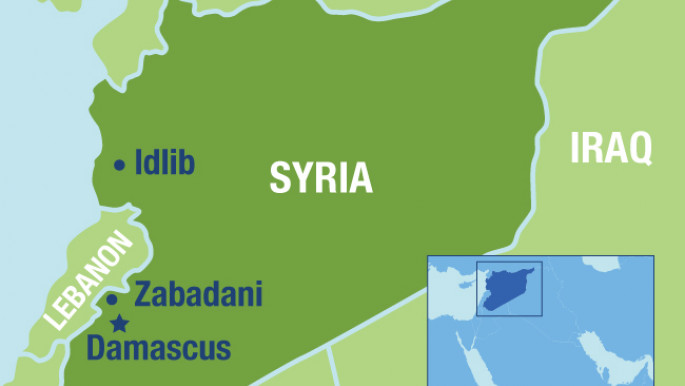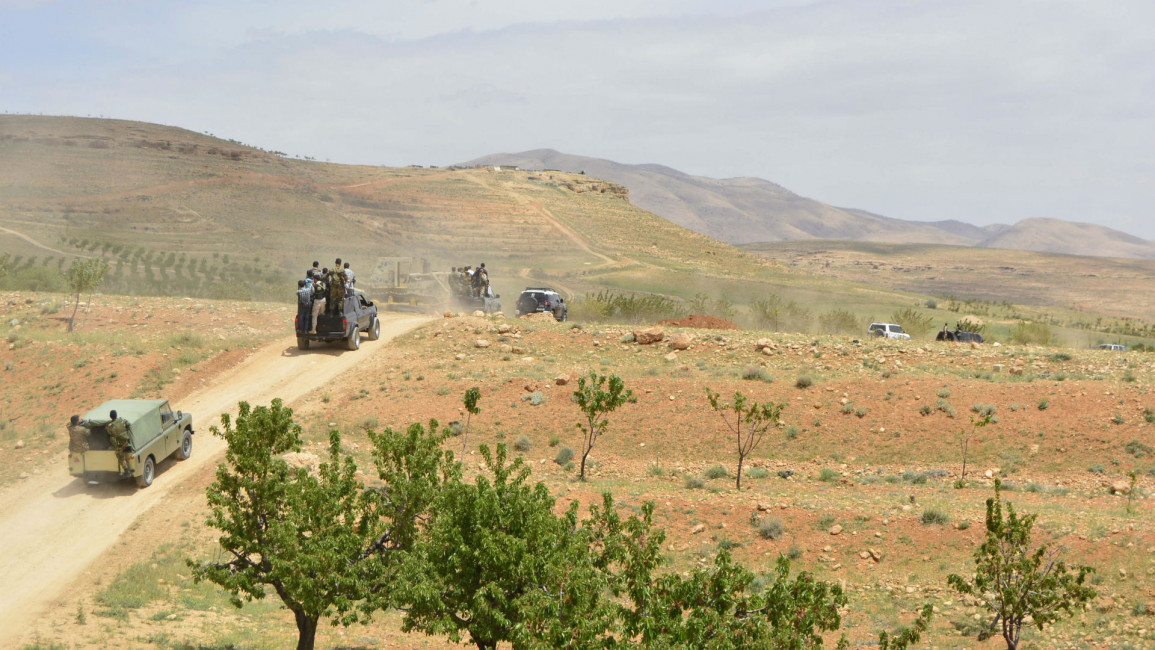Turkey, Iran help broker rare truce in Syria
A 48-hour ceasefire came into effect Wednesday, halting fighting between insurgents on the one hand, and the army and its Lebanese Hizbollah allies on the other, in the rebel-held town of Zabadani and in a pair of Shia Muslim villages in Idlib province.
"We really noticed that it was relatively calm this morning," Mohammad, a resident of the flashpoint town of Zabadani, told AFP.
"We didn't hear sounds of shelling or clashes, and we hope the situation stays like this."
Pro-regime forces, including Lebanon's Shia militia Hizbollah, had been fighting rebel groups in a bid to seize the town since early July.
Late Tuesday, the two sides agreed to implement simultaneous 48-hour ceasefires in Zabadani and two regime-controlled villages in northwest Syria, according to the Syrian Observatory for Human Rights.
| Fuaa and Kafraya in northwest Idlib province are under siege by a rebel alliance. |
Observatory head Rami Abdel Rahman said "no shots have been fired since 6:00 am" local time (0300 GMT) in Zabadani as well as Fuaa and Kafraya.
Fuaa and Kafraya in northwest Idlib province are under siege by a rebel alliance including Al-Qaeda affiliate Al-Nusra Front, which regularly fires rockets into the two Shia towns.
Mohammed Abu Qassem, secretary general of Syria's Tadamun (Solidarity) Party, said he had negotiated the ceasefire on behalf of fighting groups inside Zabadani.
"Tadamun was authorised to negotiate with the government to reach a new agreement, Abu Qassem said.
"Since the beginning of the military operation, we have been trying to find a solution to the crisis in Zabadani," he said, adding that a local administrative council, rebel groups and regime forces had signed off on the ceasefire.
He said intensifying rebel attacks on Fuaa and Kafraya had expedited the agreement.
"We accepted the ceasefire because we wanted to end the battle with as few losses as possible," a security source said.
"But we won't accept that the armed groups stay in Zabadani after today," he said.
According to the Observatory, negotiations are ongoing regarding the safe exit of rebel fighters from Zabadani, as well as the provision of food and medical aid to residents of Fuaa and Kafraya.
Local ceasefires have been implemented intermittently in parts of Syria, often to bring in humanitarian aid to besieged populations.
The two areas are strongholds of each side under ferocious attack by the other. Sources familiar with the talks, which have been under way for weeks, said the truce could be extended to give time for ongoing negotiations aimed at evacuating civilians and combatants.
Assad's fate
 |
|
The two areas are strongholds of each side under ferocious attack by the other. Sources familiar with the talks, which have been under way for weeks, said the truce could be extended to give time for ongoing negotiations aimed at evacuating civilians and combatants.
Three officials close to Damascus described the truce as a result of mediation by Turkey, which backs rebels fighting against President Bashar al-Assad, and Iran, whose support has been vital to his survival.
It adds to recent signs of new efforts in the region to end diplomatic deadlock over a conflict that has killed a quarter of a million people, made 10 million homeless, left swathes of Syria in the hands of Islamic State militants and divided the countries of the Middle East on sectarian grounds.
After four years in which diplomats made no headway toward peace, countries that support Assad and his opponents have been quietly discussing ways to end the war and tackle the common threat from Islamic State. But Assad's fate remains a major obstacle to the new diplomatic effort.
Iran's Foreign Minister Mohammad Javad Zarif arrived in Damascus on Wednesday and met with Assad. He was expected to discuss a new peace plan for Syria.



